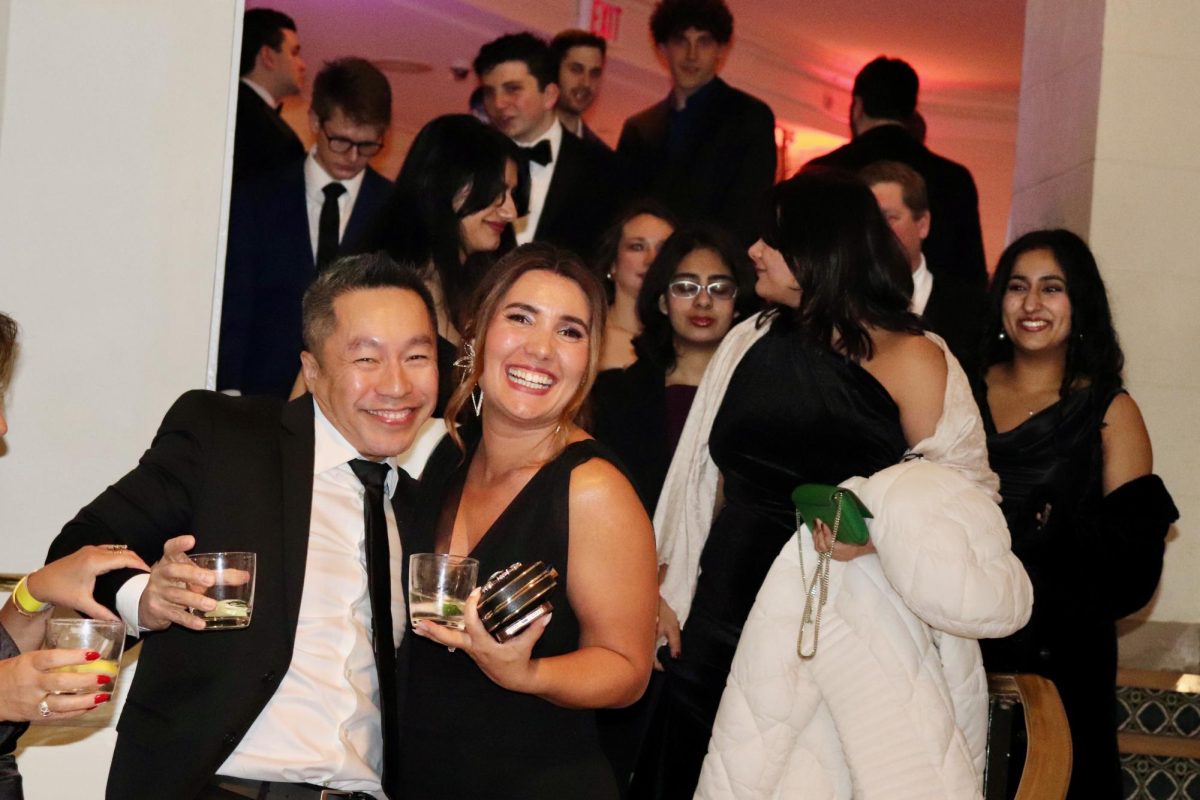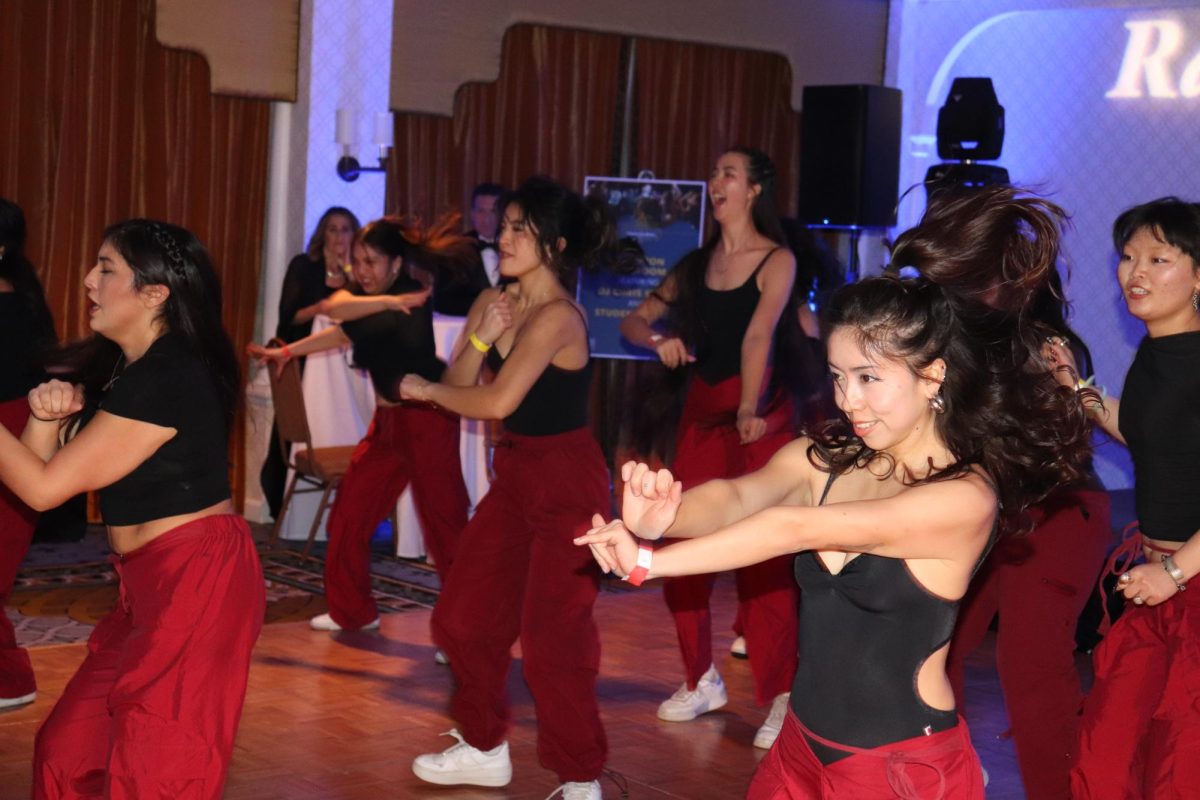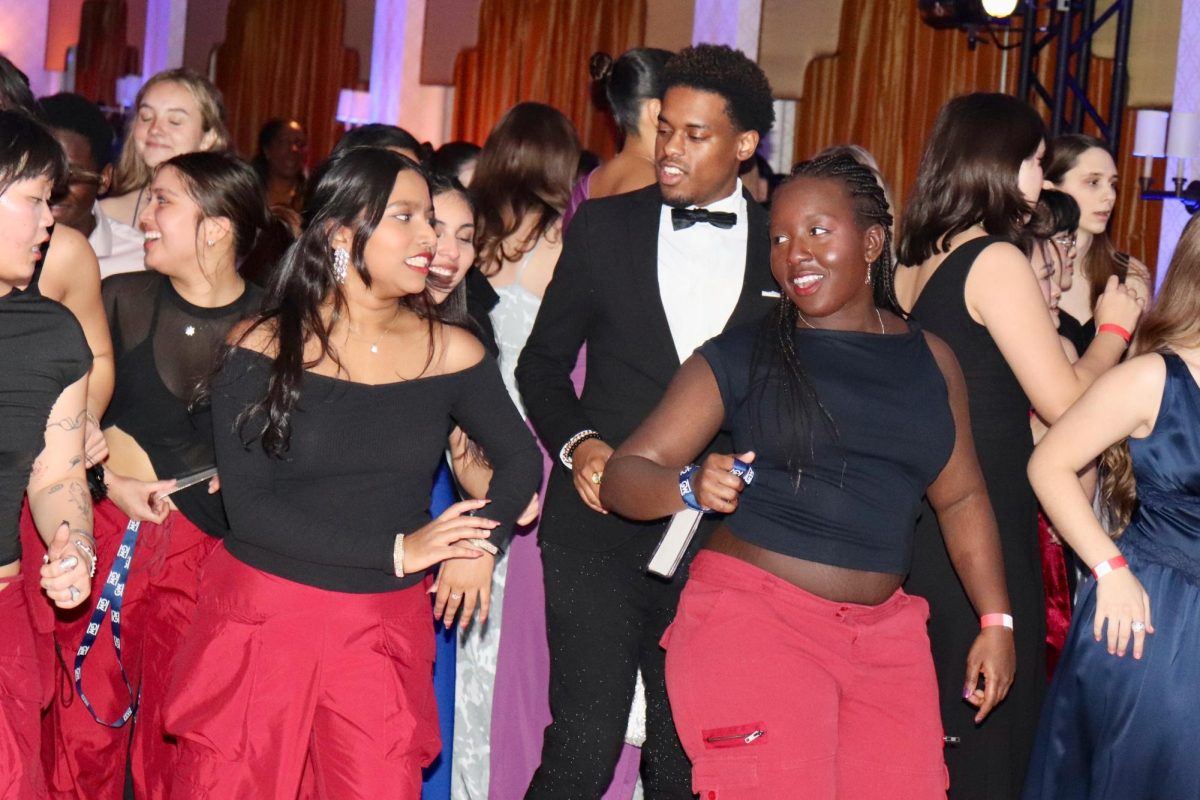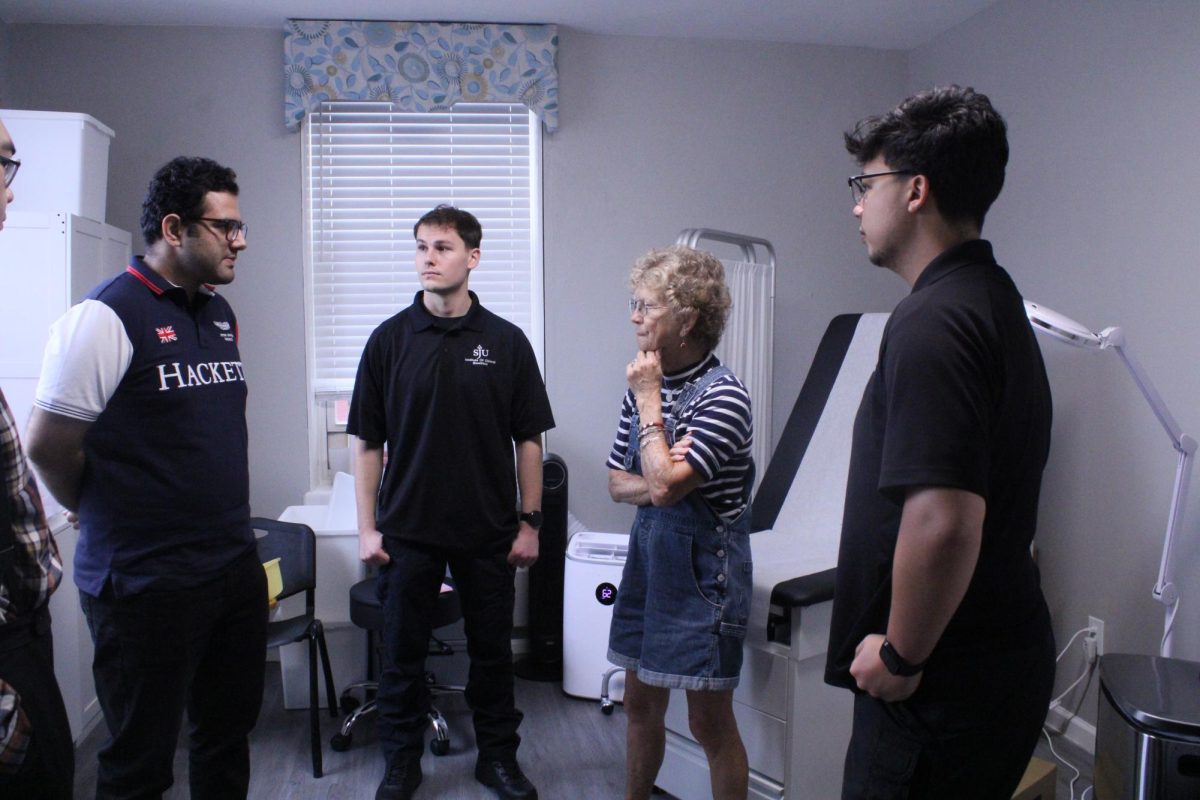Balls have been an inauguration tradition since 1789, when the first inaugural ball was held in honor of George Washington. While they have evolved over the years, these typically formal, black-tie events have remained a celebration of the democratic process.
Throughout inauguration weekend, people around Washington, D.C., shelled out money for tickets, donning sharp suits, sparkling dresses and other glitzy attire as they gathered in ornate ballrooms across the city.
Randall Miller, Ph.D., professor emeritus of history, said inaugural balls are intended to celebrate the American experience, bolstering the political system that has become a model for the rest of the world.
“All inaugural balls are to bring like-minded people together, or people that you want to support you, to supposedly have a good time, to mix and mingle, to make connections, develop associations even in the public mind that you are supporting the president and part of the team,” Miller said.
The George Washington University (GW) has hosted an inaugural ball every four years since 1993, said Julia Metjian, GW’s assistant director of media relations. This year, GW hosted its inaugural ball Jan. 19 at the Omni Shoreham Hotel, which was attended by students, alumni, faculty and others with connections to the university.
Attendees filled two floors of ballrooms, complete with food, photo-ops and plenty of space to dance. In the upstairs ballroom, there were performances from student organizations, including the comedy group receSs and multicultural dance team GW Chamak, while downstairs, a live band played.
“Through the GW Inaugural Ball, the university creates a memorable and nonpartisan event that celebrates our politically active campus in the heart of the nation’s capital as well as our diverse campus community,” Metjian said.
Ayomide Fashola, an organizer of the ball and student program associate for GW’s Orientation, Class Year & Families Programs, emphasized how the event fosters unity and allows for the coexistence of differing opinions.
“The inaugural ball commemorates this moment in U.S. history in terms of this presidential election,” Fashola said. “Again, [this] happens every four years, depending on the terms, but it is a chance to bring everyone together, whether it’s of same values, different values.”
GW students like Ella Adelman, a first-year political science major, said attending anything to do with the inauguration was a good learning experience, including the GW Inaugural Ball. Adelman said the experience was a chance for unity within the school.
“I feel like this event specifically, regardless of political affiliation, is a chance for the school to come together,” Adelman said.
Rosa Szurgot, a GW doctoral student and assistant professor of cyber intelligence and security at Embry-Riddle Aeronautical University, said the ball represents the collective pride of the university, drawing together students of all academic backgrounds.
“[The ball is] representative of our culture as a GW community, and it also really matters that it only happens every four years. Everybody’s more excited [for it] than any other annual ball,” Szurgot said. “The connections that you make, whether they’re undergrad students or graduate or doctoral level students, it’s what makes a difference.”
Even for some students who did not vote for the winning presidential candidate, the GW Inaugural Ball was still significant.
“Along with unity, it shows generations coming together of students and staff and alumni, all being able to celebrate together and have a fun night where we all are seeing [each other] more as people versus the levels of us in the institution,” said student Amy Fischer.
Student Ainsley Cobb said now more than ever, in the current divisive political climate, it is important to have events like the GW Inaugural Ball.
“It’s more valuable than it’s ever been to have these sorts of events and all come together and be able to enjoy each other’s presence and humanity and what it all means for togetherness,” Cobb said.
Katherine Sibley, Ph.D., St. Joe’s professor of history, said in addition to bringing people together, ceremonial balls are a way for Americans to pull back the curtain and feel involved in the success of the nation.
“The balls are a way into the leadership of the country and understanding it better, and feeling a connection, feeling like, ‘Well, this is our our country. This is our presidency, whether we like the person in there or not,’” Sibley said. “The whole symbol of it is significant and important to Americans.”
Ally Engelbert ’25 and Hannah Pajtis ’26 contributed to this story.






















































